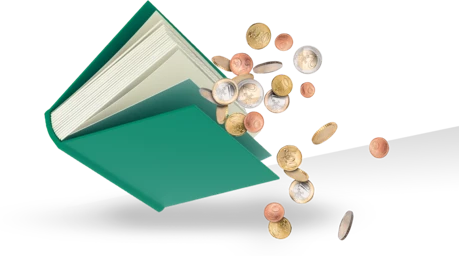
Over de opleiding Studiepunten: 60 ECTS

Erasmus School of Law offers four specializations in Commercial Law: Commercial & Company Law, International Arbitration & Business Law, International Trade Law and Maritime & Transport law.
Commercial and Company Law: this LL.M. programme provides you with a thorough insight into the legal aspects of doing business in an international setting. You will get a thorough insight into the legal aspects of doing business in an international setting, while studying in one of the leading commercial centres and largest ports of Europe.
International Arbitration Law: this LL.M. programme provides its graduates with a unique set of international arbitration skills together with solid expertise in...
Keuzes binnen de opleiding
-
This LL.M. programme provides you with a thorough insight into the legal aspects of doing business in an international setting.
The programme is focused on two main pillars.
Company law
This pillar focuses on the main topics of corporate governance. Issues such as the functioning of the board of directors, shareholder rights and cross-border voting and some aspects of European labour law will be discussed. Attention is also given to the EC-directives on the freedom of establishment, national and cross-border mergers, take over bids, representation, supranational companies and the Societas Europaea.
2. Commercial law
This pillar consists of courses detailing the risks of international trade, how these risks can be allocated (e.g. by utilizing documents of title) and how they may be averted or minimised. Its focus is the individual contracts on which the cooperation between the multitude of businesses involved in an international sale of goods transaction is based as well as the legal foundations of these transactions. Such contracts include contracts of insurance, financing and payment, transport, storage and logistics.
The master distinguishes itself from other programmes by emphasizing private legal relationships, the balance between commercial law, corporate law and procedural law courses.
-
This LL.M. programme provides its graduates with a unique set of international arbitration skills together with solid expertise in international business law.
The main pillar of the programme is International arbitration.
International arbitration
After successfully concluding the research and writing skills module, you will fully immerse in the world of International arbitration. During the second block of the academic year, you will be confronted not only with the fundamental aspects of arbitration law, but you will also have an insight on commercial contracts. In the spring term, you will be exposed to distinctive futures of commercial and investment arbitration. You will also get the chance to participate in one of the numerous international moot courts.
The courses are taught by academics and professionals active in the field of international arbitration. You can expect to explore the world of international arbitration both from the legal counsels' and from the arbitrators' perspectives.
-
This LL.M. programme covers the legal aspects of international trade and commerce. It is exclusively focused on international commercial law.
What does the programme entail?
Commercial contracts and trade financing
After the Research & Writing Skills module, you will study commercial contracts. The start of commercial transactions is often a contract for the purchase of goods or services, but there are also important ancillary contracts. These agreements are studied in the Commercial Contracts course. The goods or services purchased also need to be paid. In an international setting, payment and security for payment are not always simple. These issues are covered in the Trade Finance Law course.
Risks, insurance, transportation and intellectual property rights
Parties involved in business transactions will often enter into insurance contracts in order to cover their risks and liability. You will learn how these risks can be allocated and how they may be averted or minimized. Purchased goods usually also need to be transported. You will study contracts of carriage, transport documents and more, and the liabilities of the carrier and the shipper. Finally, manufacturers need to protect their products against unauthorized copying. In the Intellectual Property Law course you will learn to understand IPL protection.
-
This LL.M. programme provides you with thorough, in-depth knowledge of the dynamic world of maritime and transport law.
What does the programme cover?
Students acquire research, writing and presentation skills needed for a successful career as a legal practitioner or an in-house counsel in the maritime- or transport-related business world. By focussing on current developments and practical problems from a comparative law perspective, students develop an international outlook on the many legal aspects of shipping and the transportation of goods.
Based in the port of Rotterdam, this programme educates legal professionals that are well prepared to meet the many challenges that arise from this field.
Does the programme have a particular focus?
Throughout the programme, aspects of maritime and transport law are considered from a comparative law perspective. Particular attention is paid to differences in approach and outcome between civil law jurisdictions and common law jurisdictions and by reference to the relevant standards in the international maritime and transport industry.
Depending on the subject-matter, such international standards are found in uniform private law instruments like the Hague-Visby Rules, or in widely used standard contract forms, such as the various BIMCO standard agreements.
- + Meer

Kennismaken met de opleiding?
Op Studiekeuze123 kun je informatie vergelijken. Op de website van de onderwijsinstelling kun je verder lezen als de opleiding je aanspreekt.
Bekijk instellingswebsiteBekostiging: Overheid
Toelating & selectie € 2.694 wettelijk collegegeld in 2026 / 2027

Om toegelaten te worden tot een opleiding moet je aan bepaalde eisen voldoen.

Toelatingseisen
Om aan een master te kunnen starten, heb je een bachelordiploma nodig.
Sluit je bachelor niet direct aan op de master, of stroom je door van hbo naar wo? Dan moet je meestal een schakelprogramma of premaster volgen. Lees meer over schakelprogramma’s (Schakelprogramma, is dat nodig? - Studiekeuze123)
Collegegelden
Wettelijk collegegeld
Wettelijk collegegeld
Wettelijk of instellingscollegegeld?
Heb je recht op het wettelijk collegegeld of betaal je het instellingscollegegeld? Gebruik onze Collegegeldwijzer
Hoe hoog is het instellingscollegegeld? Bekijk het op de website van de universiteit
Meer weten?
Belangrijke data

Mis geen belangrijke gebeurtenissen. Check belangrijke data ook bij de opleiding zelf.

-
1
juli 2026
Aanmelddeadline opleiding -
1
september 2026
Start opleiding
Alle startmomenten
Tijdens de opleiding 103 eerstejaars

Geen enkele opleiding is hetzelfde. Kijk daarom naar de kenmerken van een opleiding.

Studeren bij deze instelling
Studieadvies
We hebben onvoldoende betrouwbare informatie over dit onderwerp.
Studieverloop
Diploma binnen 2 jaar
Meer weten?
Tevredenheid 3.5/5.0 algemene tevredenheid

Hoe beoordelen de (oud)studenten deze opleiding?

Nationale Studenten Enquête
Hoe tevreden waren studenten in 2025 over aspecten van deze opleiding?
|
Studenttevredenheid
Meer informatie | 3.5 / 5 |
|---|---|
| Sfeer | 3.6 / 5 |
| Studiefaciliteiten | 4.0 / 5 |
| Studie opnieuw kiezen | 3.6 / 5 |
| Inhoud en opzet | 3.5 / 5 |
| Aansluiting beroepspraktijk | 3.3 / 5 |
|
Studenttevredenheid
Meer informatie | 3.5 / 5 |
| Sfeer | 3.6 / 5 |
| Studiefaciliteiten | 4.0 / 5 |
| Studie opnieuw kiezen | 3.6 / 5 |
| Inhoud en opzet | 3.5 / 5 |
| Aansluiting beroepspraktijk | 3.3 / 5 |
| Docenten | 3.7 / 5 |
| Lesstof in het Engels | 4.3 / 5 |
| Studiebegeleiding | 3.3 / 5 |
| Toetsing en beoordeling | 2.8 / 5 |
| Betrokkenheid en contact | 3.5 / 5 |
| Studiedruk |
Oordeel afgestudeerden
Over de studie Commercial Law
Studeren met een ondersteuningsbehoefte
Veel studenten hebben tijdens hun studie behoefte aan extra voorzieningen of flexibiliteit in het onderwijs. Dit kan komen door een aandoening zoals dyslexie, een chronische ziekte, psychische klachten, maar ook topsport of ondernemerschap tijdens de studie. Studenten beoordeelden hoe tevreden ze zijn over de ondersteuningsmogelijkheden bij hun onderwijsinstelling.
Na afstuderen 71% van de werkenden vond een baan op niveau

Lees hoe het studenten van deze opleiding in de eerste periode na hun studie vergaat op de arbeidsmarkt.

Meest gekozen beroepen (na deze studie)
| Juristen, niet elders geclassificeerd | 40% |
| Advocaten | 16% |
| Professoren en andere onderwijsgevenden in het hoger onderwijs | 7% |
| Specialisten op het gebied van beleidsadministratie | 6% |
| Vakspecialisten op juridisch gebied e.d. | 5% |
Werkgelegenheid na deze studie
Bij deze studie zijn de verwachtingen voor het vinden van een baan goed.
Een (substantiële) baan vinden...
duurt gemiddeld 5 maanden.40% krijgt een vast contract.
Match tussen studie en beroep
80% vond een baan binnen het vakgebied van de studie
71% vond een baan op het niveau van de studie
Startsalaris
Het startsalaris na deze studie is hoger dan het gemiddelde van alle wo master studies.
€ 3.247
Geschatte startsalaris na deze studie
€ 3.150
Geschat van alle wo master studies
Gemiddelde werkweek
Hoeveel uur afgestudeerden gemiddeld werken bij hun huidige baan.
38 uur
Het percentage zelfstandigen
Het aandeel mensen dat werkt als zelfstandige of ondernemer.
2%
Contact

Meer weten over de opleiding? Neem contact op met Erasmus Universiteit Rotterdam

Adres
Burgemeester Oudlaan 50
3062 PA
Rotterdam

Meer informatie
Bezoek ook de website van Erasmus Universiteit Rotterdam
Bezoek website van Erasmus Universiteit Rotterdam


